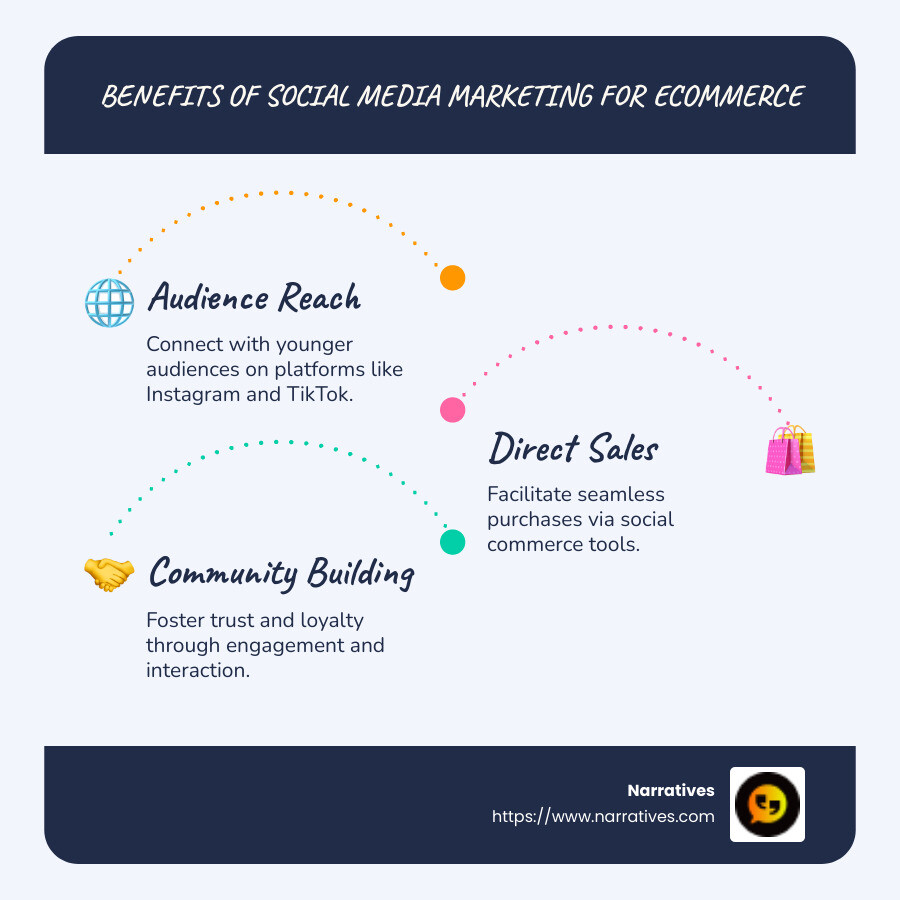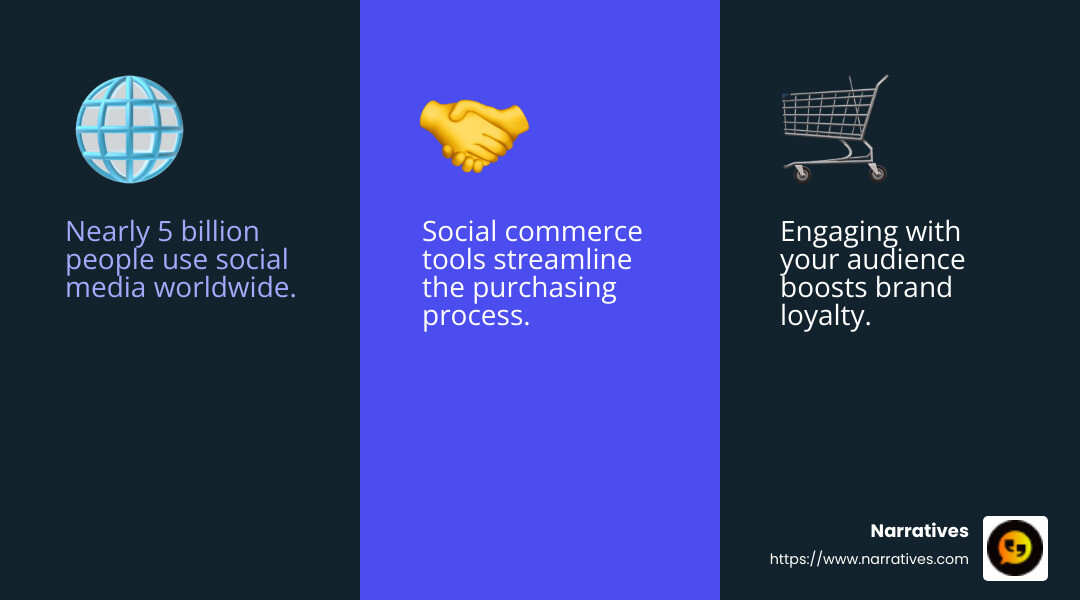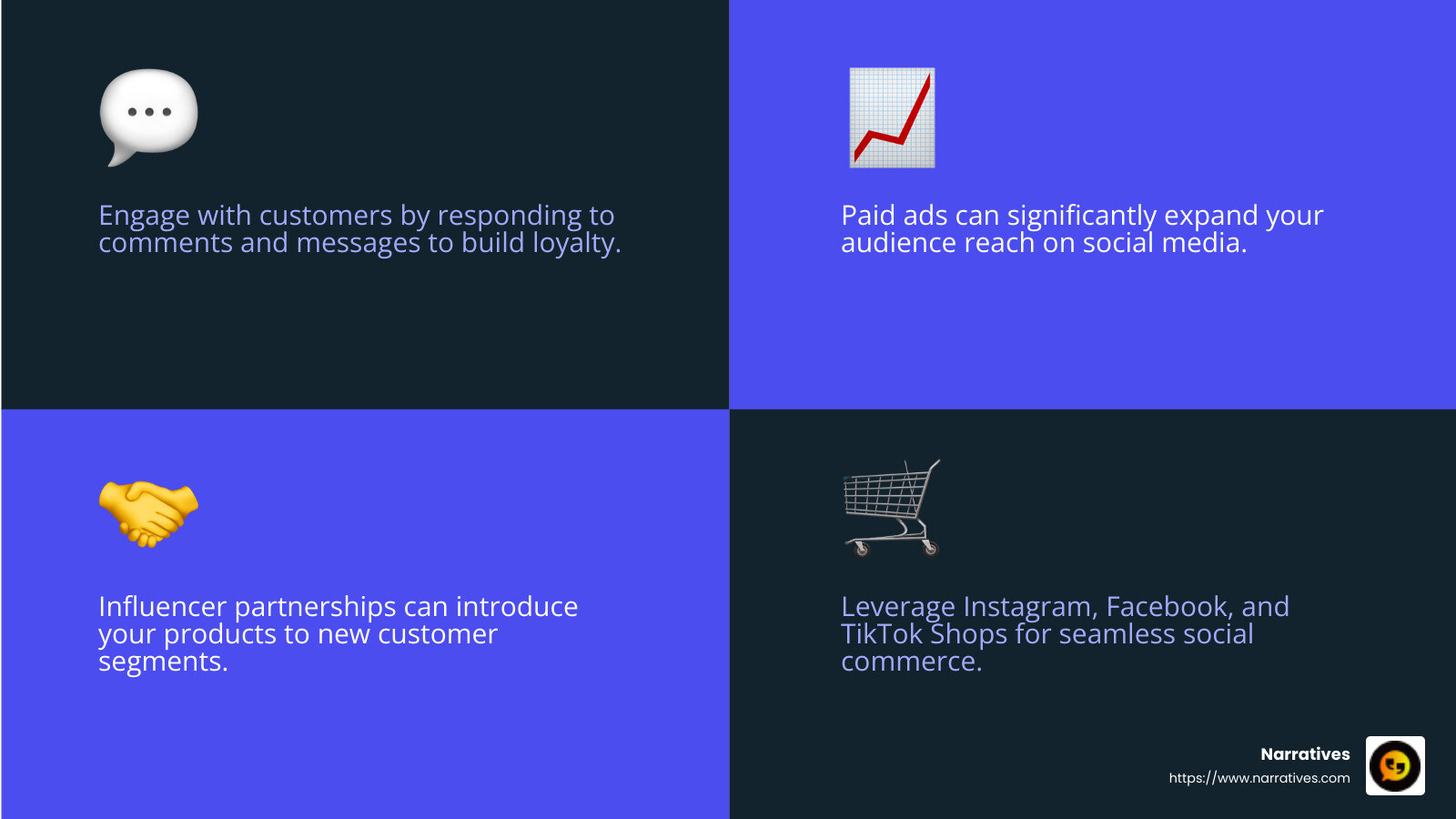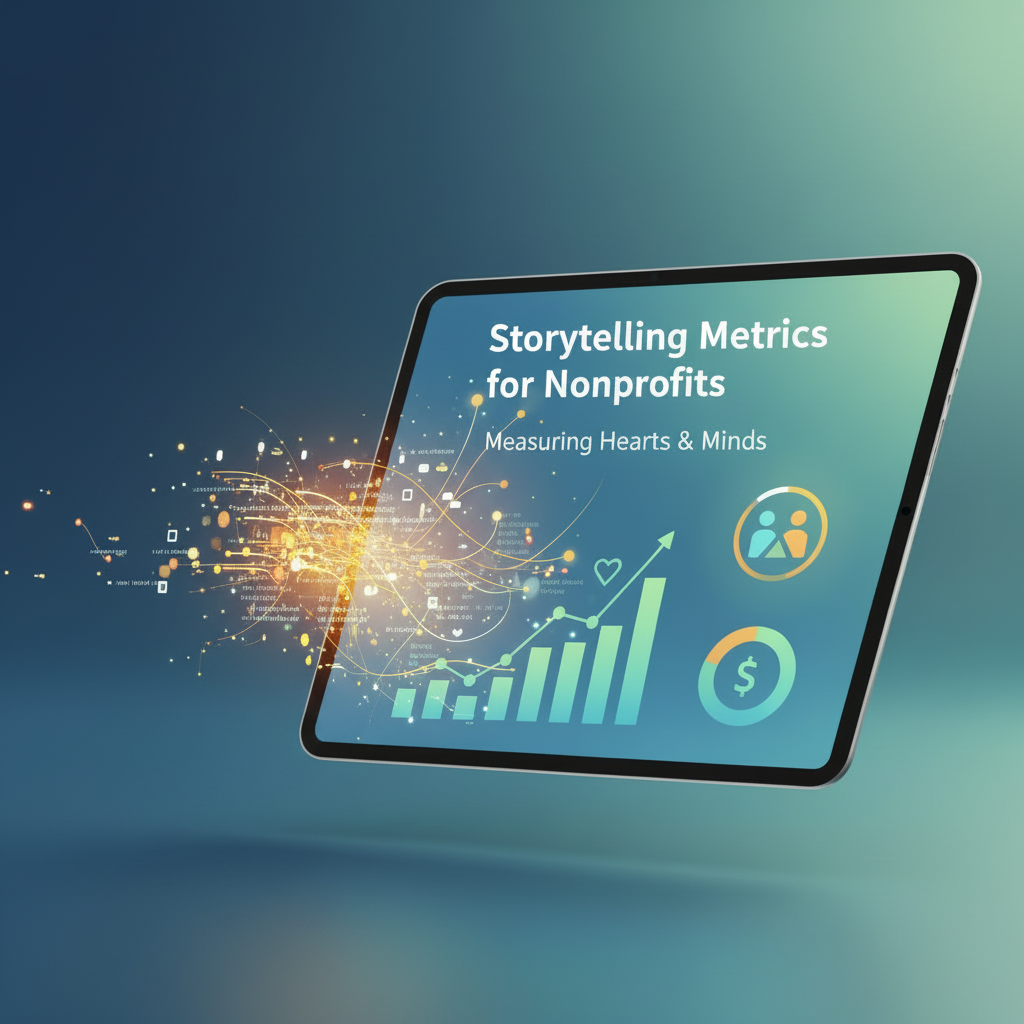Digital Sales: A Guide to Social Media Marketing for Ecommerce

The Role of Social Media in Ecommerce: Connecting Brands and Consumers
Social media marketing for ecommerce is a game-changer that's connecting brands directly with consumers. In an era where digital sales are soaring, leveraging social networks is no longer optional—it's essential. Here’s a quick glimpse into why this marketing strategy is vital:
Reach Younger Audiences: Platforms like Instagram and TikTok are where the younger generation finds and researches products, making these tools crucial for brand visibility.
Drive Direct Sales: Social media commerce tools, such as Instagram Shops and Facebook Shops, allow consumers to buy products without leaving their social app, smoothing the purchase process.
Build Brand Community: Engaging with your audience on social media fosters trust and loyalty, key components for long-term business success.
Social media is more than just a promotional space; it’s a vibrant marketplace and community where brands can interact with potential customers. With over half of Gen Z using social media as their primary source for brand findy, staying active on these platforms can significantly boost ecommerce sales. Whether you're looking to build brand awareness, engage with your audience, or increase your sales, social media platforms can offer a comprehensive solution for ecommerce growth.

Basic social media marketing for ecommerce glossary:
- social media marketing for b2b companies
- social media marketing for music artists
- social media marketing for saas
Understanding Social Media Marketing for Ecommerce
Benefits of Social Media Marketing for Ecommerce
Social media marketing for ecommerce offers numerous advantages that can transform your business. Here’s how:
Expand Brand Awareness: With nearly 5 billion social media users worldwide, your brand has the potential to reach a vast audience. Social media platforms are ideal for spreading the word about your products and services. A post shared by the right influencer can introduce your brand to thousands, if not millions, of potential customers.
Improve Customer Engagement: Social media platforms are not just about broadcasting messages; they're about creating conversations. By engaging with your audience through comments, likes, and shares, you build a community around your brand. This interaction fosters loyalty and helps you understand customer needs better.
Boost Sales Growth: Direct sales through social media are on the rise. Tools like Instagram Shops and Facebook Shops make it easy for customers to purchase directly from your posts. This seamless shopping experience can lead to increased sales and a higher conversion rate.

Key Platforms for Ecommerce Success
When it comes to social media marketing for ecommerce, not all platforms are created equal. Here's a breakdown of the top contenders:
Facebook: With its extensive user base, Facebook is a powerhouse for ecommerce. Facebook Shops allows businesses to create a fully integrated shopping experience. Its advanced targeting options for ads can help you reach specific demographics, ensuring your products are seen by those most likely to buy.
Instagram: Known for its visual appeal, Instagram is perfect for showcasing products through eye-catching images and videos. Features like Instagram Stories and Reels can boost engagement, while Instagram Shopping turns your profile into a virtual storefront.
TikTok: This platform thrives on creativity and viral content. TikTok's younger audience is highly engaged, making it a fertile ground for innovative marketing campaigns. The TikTok Shopping feature allows brands to integrate shop links directly into their content, driving sales from viral videos.
Each platform offers unique opportunities to connect with your audience and drive ecommerce success. By understanding the strengths of each, you can tailor your strategy to maximize impact and grow your brand presence online.
Creating an Effective Social Media Marketing Strategy
Organic vs. Paid Strategies
When crafting a social media marketing strategy for ecommerce, blending organic and paid strategies is key. This approach maximizes your reach and keeps your audience engaged.
Organic Strategies
Organic content is the backbone of your social media presence. It’s what keeps your audience coming back. Here are a few tactics:
Product Reviews: Share customer reviews on your social media accounts. This builds trust and encourages others to buy.
Hashtags: Use relevant hashtags to increase your brand's findability. It helps new customers find you.
Customer Interaction: Engage with your customers by replying to comments and messages. Personal engagement builds loyalty.
User-Generated Content: Encourage your customers to share their experiences with your products. This not only provides social proof but also creates authentic content.
Paid Strategies
Paid advertising on social media can expand your reach significantly. Here’s how:
Advertisements and Boosts: Run targeted ads or boost popular posts to reach a wider audience. Facebook and Instagram offer advanced targeting options to help you reach potential buyers.
Influencer Marketing: Partner with influencers who resonate with your brand. Influencers can introduce your products to their followers, expanding your reach.
Brand Partnerships: Collaborate with complementary brands to tap into their audience. This can be mutually beneficial and cost-effective.
Combining these strategies can create a comprehensive approach to social media marketing, ensuring both reach and engagement.
Leveraging Social Commerce Tools
Social commerce tools like Instagram Shops, Facebook Shops, and TikTok Shopping are revolutionizing the way customers shop online. These tools allow seamless shopping experiences directly on social platforms.
Instagram Shops
Instagram Shops turn your profile into a virtual storefront. Customers can browse your products and make purchases without leaving the app. This reduces friction and can lead to higher conversion rates.
Facebook Shops
Facebook Shops provide a customizable shopping experience. You can create collections, highlight featured products, and even offer customer support directly on Facebook. It’s a powerful tool for engaging with your audience and driving sales.
TikTok Shopping
TikTok Shopping is perfect for tapping into the platform's creative and engaged audience. By integrating shop links directly into your content, you can drive sales from viral videos. This feature is especially effective for reaching younger demographics who are highly active on TikTok.
By leveraging these tools, you can improve your ecommerce strategy and make it easier for customers to purchase your products directly from social media.

Using both organic and paid strategies, along with social commerce tools, sets the stage for a robust social media marketing strategy. Now, let's explore best practices to further optimize your approach.
Social Media Marketing for Ecommerce: Best Practices
Engaging with Your Audience
Engaging with your audience is crucial for building a strong community around your brand. Here's how you can do it effectively:
User-Generated Content (UGC)
Encourage your customers to share photos and videos of your products in action. This not only provides authentic content but also acts as powerful social proof. For instance, brands like Solo Stove have successfully used UGC to promote their products through customer-created content.
Social Proof
Showing real customer testimonials and success stories can build trust. Highlight these on your social media platforms to reassure potential buyers. 87% of Gen Z and millennials have made purchases based on social media posts, so authentic reviews matter.
Customer Service
Use social media as a customer service channel. Quickly respond to inquiries or issues to show that you care about your customers. This responsiveness can turn a negative experience into a positive one, fostering loyalty.
Community Building
Create a sense of belonging by engaging in meaningful interactions. Encourage discussions, ask questions, and be part of conversations. This not only strengthens your community but also increases brand awareness.
Feedback
Ask for feedback on your products and services. This can be done through polls or direct questions in your posts. Listening to your audience helps in refining your offerings and shows that you value their opinions.
Utilizing Analytics for Improvement
To ensure your social media marketing for ecommerce is effective, you need to leverage analytics. Here's how you can do it:
Social Listening
Use social listening tools to understand what your audience is saying about your brand and products. This helps in identifying trends and potential areas for improvement. Platforms like Hootsuite offer insights into customer conversations that can guide your strategy.
Data Analysis
Regularly analyze data to measure the success of your campaigns. Look at metrics like engagement rates, click-through rates, and conversion rates. This data provides insights into what's working and what needs adjustment.
Performance Metrics
Track performance metrics to evaluate the effectiveness of your social media efforts. Key metrics include website clicks, profile visits, and social shares. These metrics help you understand your return on investment (ROI) and guide future strategies.
By engaging with your audience and utilizing analytics, you can refine your social media marketing efforts and drive better results. Now, let's move on to frequently asked questions about social media marketing for ecommerce.
Frequently Asked Questions about Social Media Marketing for Ecommerce
How does social media marketing benefit ecommerce businesses?
Social media marketing for ecommerce offers numerous benefits that can significantly improve a business's online presence and sales.
Increased Brand Awareness: With nearly 5 billion users worldwide, social media platforms provide an unparalleled opportunity to reach potential customers. By consistently posting engaging content, businesses can increase their visibility and attract more followers.
Improved Customer Engagement: Social media allows businesses to interact directly with their audience. This engagement can foster loyalty and encourage repeat purchases. By responding to comments, conducting polls, and sharing user-generated content, brands can build a strong community.
Sales Growth: Platforms like Instagram and Facebook offer social commerce tools that allow businesses to sell products directly through their social media pages. This seamless shopping experience can drive sales and reduce friction in the buying process.
What are the best platforms for ecommerce social media marketing?
Choosing the right platform is crucial for effective social media marketing for ecommerce. Here are the top platforms to consider:
Instagram: Known for its visual appeal, Instagram is ideal for showcasing products through high-quality images and videos. Features like Instagram Shops and Stories make it easy for users to find and purchase products.
Facebook: With its extensive user base and robust advertising tools, Facebook is a powerful platform for reaching a wide audience. Facebook Shops allow businesses to create a fully integrated online store on their page.
TikTok: As a rapidly growing platform, TikTok offers unique opportunities for brands to engage with younger audiences. Creative and entertaining content can go viral, boosting brand awareness and driving sales.
How can I measure the success of my social media marketing efforts?
To evaluate the effectiveness of your social media marketing for ecommerce, consider the following metrics:
Engagement Rates: Track likes, comments, shares, and saves to gauge how well your content resonates with your audience.
Conversion Rates: Monitor how many social media interactions lead to sales or other desired actions. This metric is crucial for understanding your return on investment.
Website Traffic: Use tools like Google Analytics to see how much traffic is driven to your website from social media platforms. This can help you identify which platforms are most effective for your business.
Social Listening: Pay attention to what people are saying about your brand online. This feedback can provide valuable insights into customer sentiment and areas for improvement.
By focusing on these key areas, businesses can optimize their social media strategies and achieve better results. Now, let's explore how Narratives can help you leverage storytelling and partnerships to improve your ecommerce efforts.
Conclusion
In the changing landscape of digital sales, social media marketing for ecommerce stands out as a powerful tool to connect with audiences and drive growth. At Narratives, we understand the unique challenges and opportunities that come with leveraging social media for ecommerce. Our focus is on crafting compelling stories that resonate with audiences and amplify the voices of non-profits and purpose-driven organizations.
The Power of Storytelling
Storytelling is at the heart of effective social media marketing. It’s not just about showcasing products; it's about sharing the stories behind them. Narratives excels in creating emotionally resonant content that captures the essence of a brand. By highlighting the impact and mission of non-profits, we help build trust and inspire action. This approach not only improves brand awareness but also fosters a deeper connection with potential customers.
Building Non-Profit Partnerships
Non-profit partnerships are central to our strategy at Narratives. By collaborating with organizations that align with our values, we lift underrepresented voices and create content that matters. These partnerships are more than just collaborations; they are opportunities to make a real difference. Through high-quality multimedia content, we help non-profits share their impact stories, increasing visibility and driving engagement.
Why Choose Narratives?
Choosing Narratives as your digital storytelling partner means choosing a team dedicated to authenticity and impact. We specialize in crafting content that not only meets your marketing goals but also supports your broader mission. Whether you’re looking to improve your social media presence or build meaningful partnerships, Narratives is here to help you succeed.
For more information on how we can support your social media marketing efforts, explore our media network services. Together, let's create stories that inspire change and drive results.


